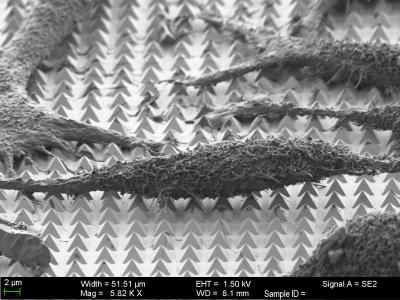Bio Nano Consulting signs agreement with The School of Pharmacy, University of London
Bio Nano Consulting (BNC) announced the signing of a service level agreement (SLA) with The School of Pharmacy, University of London. This latest SLA enables BNC to offer an expanded service offering to life science and pharma companies as it provides access to an increased pool of academic experts skilled in the fields of pharmaceutics, pharmacology and drug discovery.
At the same time, BNC has already utilised the new arrangement to secure a contract with an undisclosed US-based biotechnology company. Under the terms of the agreement, BNC will manage a specific project, carried out by scientists at the School of Pharmacy, to formulate a phase I cancer drug with the goal of making the treatment orally available, rather than delivered intravenously. The four month proof of concept project is intended to demonstrate dissolution and oral availability and, once successful, will progress to a second project stage with School scientists working closely with the biotechnology company to take the formulation through to late-stage development. Undisclosed licensing and milestone terms have been agreed between the School and the client, subject to formulation success.
The School’s strong scientific resources are entirely complementary to BNC’s existing nanotechnology and bioengineering services, provided through the London Centre for Nanotechnology at University College London (UCL) and Imperial College London respectively. In particular at the School, Professor Ijeoma Uchegbu is one of the leading experts in the combined areas of nanoscience, nanotechnology, drug delivery, polymer chemistry, molecular self assembly and gene delivery. Prof. Uchegbu has developed a suite of nanotechnology formulation IP, which has demonstrated proof of concept by delivering other gut labile drugs and poorly water soluble drugs, both of which are extremely difficult to deliver via this route.
Other news from the department science

Get the life science industry in your inbox
By submitting this form you agree that LUMITOS AG will send you the newsletter(s) selected above by email. Your data will not be passed on to third parties. Your data will be stored and processed in accordance with our data protection regulations. LUMITOS may contact you by email for the purpose of advertising or market and opinion surveys. You can revoke your consent at any time without giving reasons to LUMITOS AG, Ernst-Augustin-Str. 2, 12489 Berlin, Germany or by e-mail at revoke@lumitos.com with effect for the future. In addition, each email contains a link to unsubscribe from the corresponding newsletter.





















































